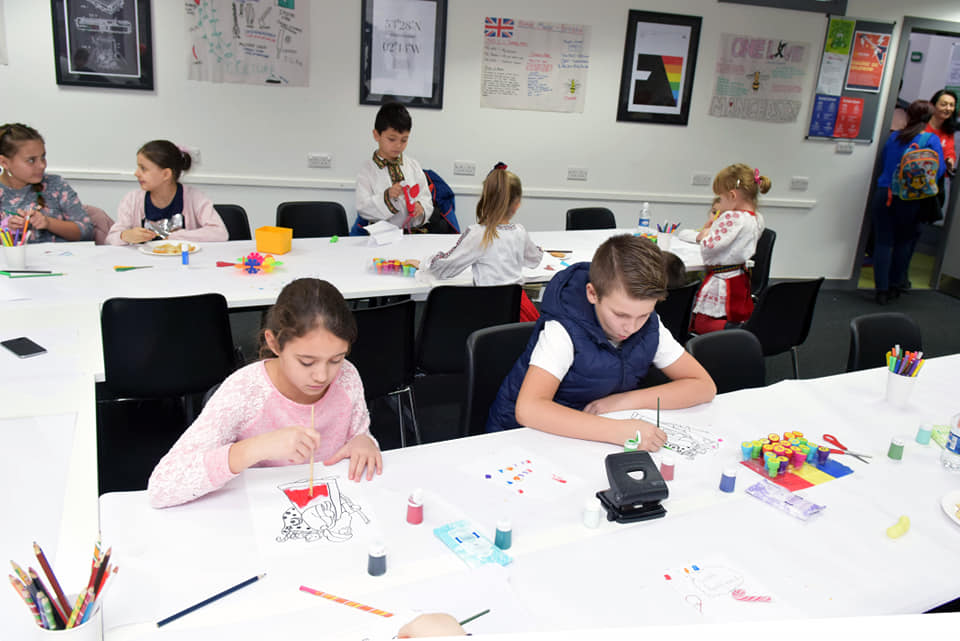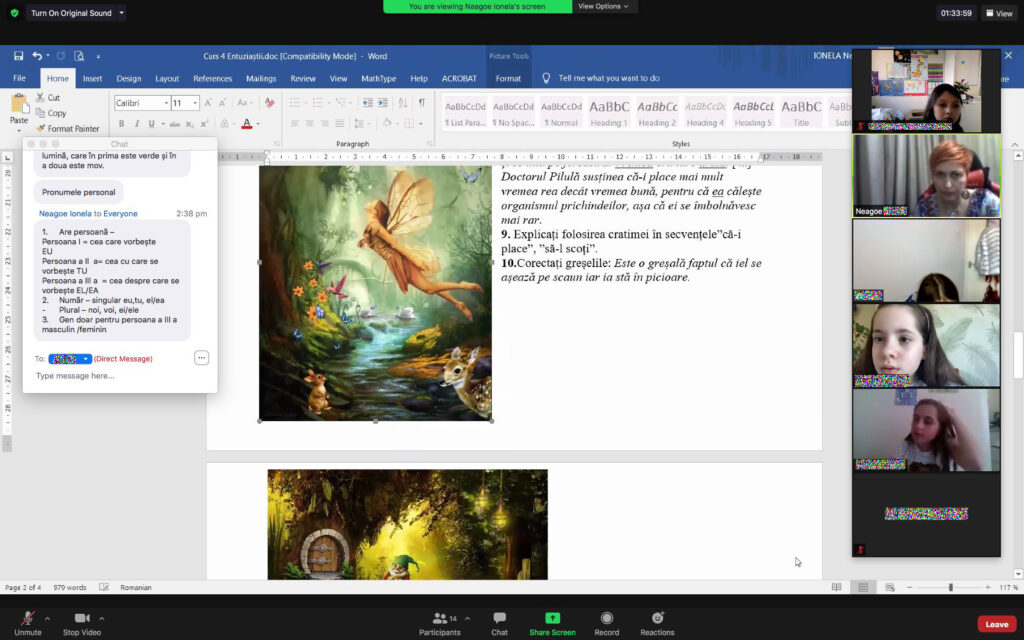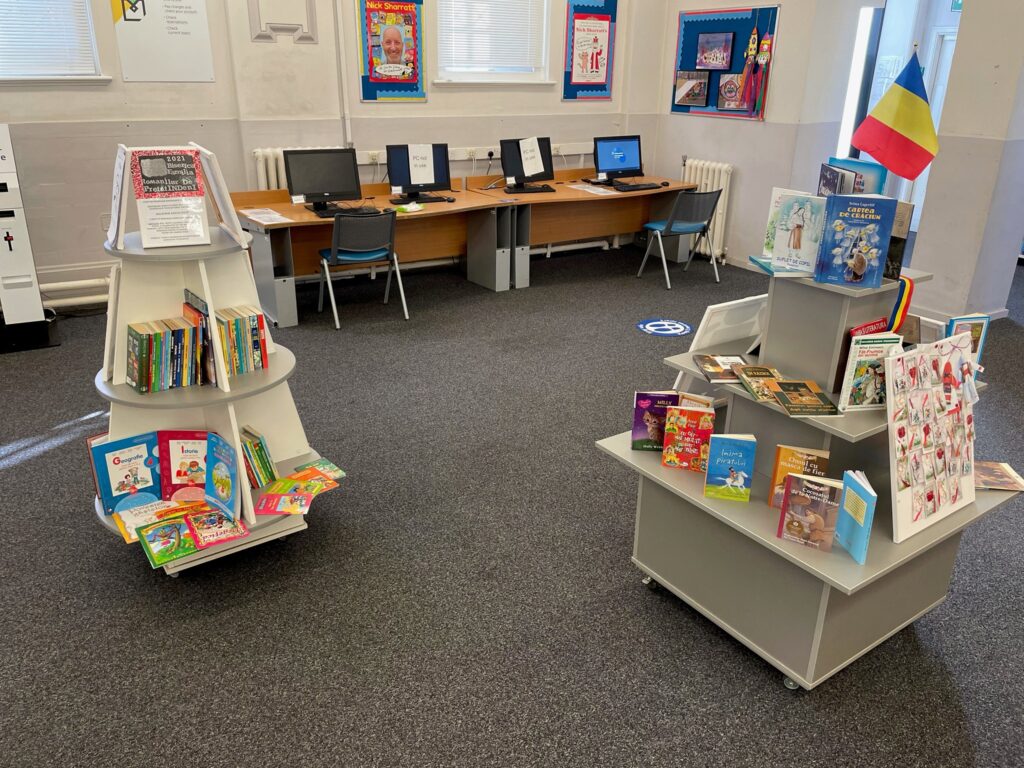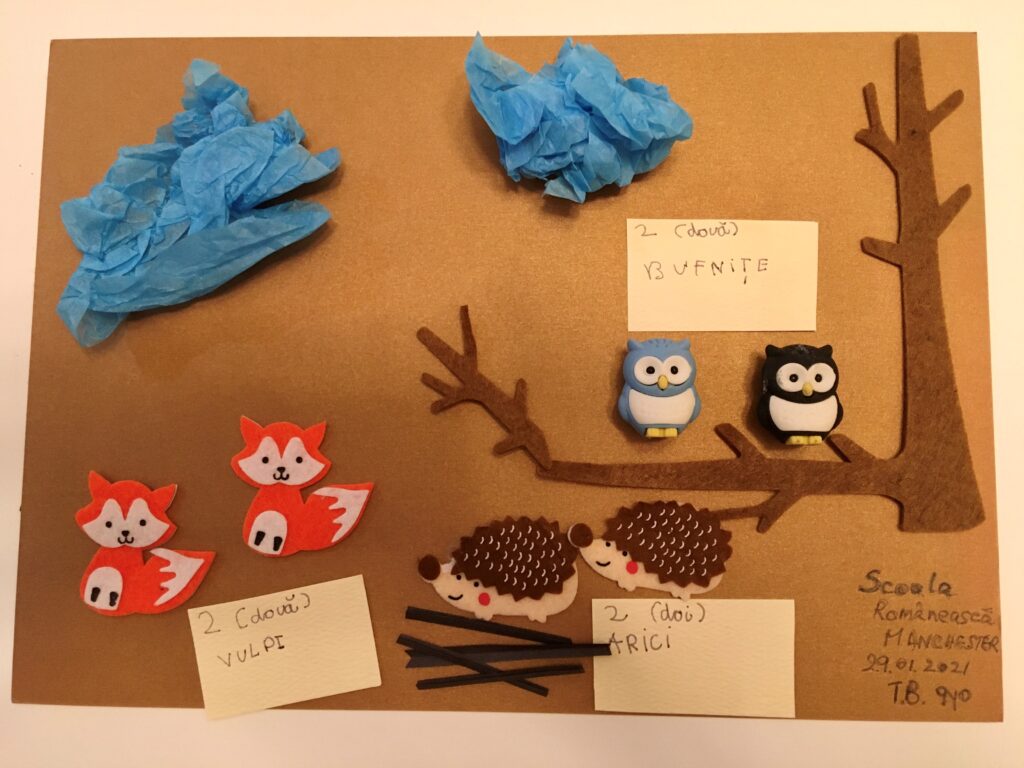Over the past weeks and months, media has been full of concerns regarding learning, set-ups in schools, home-education, etc. But what has lockdown been like for complementary schools? With schools returning to classroom teaching this week, Alina Badescu, from the Romanian School in Manchester, gives us insights into the impact of the pandemic on learning and teaching at her school.
“Nicolae Iorga”, the Romanian Saturday School in Manchester was launched in November 2019, with the Covid-19 pandemic emerging at the end of March 2020. The new medico-socio-economic crisis brought many challenges to which we had to find ways out. What has helped us continue through the past year was the network approach we had embraced since we have decided to set up our community school here in Manchester.
Our school is partner in a chain of eight Romanian heritage schools across the country and even abroad. Heritage schools like our initiatives contribute as community hubs. Ours are services with reach to local Romanian communities in several cities across central and northern parts of England, and in some other cities in Spain and Austria. We teach Romanian as a community language and through this we provide an opportunity to retain Romanian heritage, language and culture in the young generation. Our main aim is to emphasise our identity in the host countries, but for the children coming to the Romanian school we want to be more than just a place for learning Romanian, we want to make them feel that although they are part of a larger community in the UK they also belong to a smaller community, namely their heritage community.

The impact of Covid-19 pandemic
Like most public and private educational institutions did, we adapted quickly to the new conditions imposed by the pandemic. We turned to online classes and have integrated new tools. We had also turned our interest to other types of collaborations that would engage public institutions from Romania with our community projects. Moving teaching online meant we could more easily invite guest speakers, and connect with other schools and institutions.

Over the past year, through the pandemic and during several lockdowns, several activities still had been organised and some are to be put into action in the next few days. We had organised on-line competitions for children (drawing, writing) with Romanian traditional gifts as symbols of our culture and traditions. We have contributed to the Christmas gifts with books in Romanian. Next in line, inspired by the Multilingual Children’s Library in Sheffield, we set up an activity through which we facilitated access to Romanian literature for children through a donation of 100 books (as a starting point) to the public library stock. This is an activity we want to replicate with the implication of the Romanian schools in Liverpool and Birmingham during this year and contribute to the library stock in these two cities too.

Nevertheless, during the pandemic we lost some of our regular children, some due to relocation in the home country, others because they could not integrate the activities from both schools. Children attending complementary schools do that work on top of their standard schooling, work that is often invisible. In situations like the pandemic, if choices had to be made, complementary schooling is more likely to fall by the wayside. For example, during the past year it happened to be requested to assist some children coming to the heritage school with their studies in English. Online learning was not easily accessible to all school children unless their English proficiency was well developed.

Recently, we have started to incorporate new projects into our activities. At first in a small group, we included some of the Lost Wor(l)ds activities into our work. We realised then that these are activities can be brought up to the whole group of children and since we have been considering integrating this project into our current activities on a weekly basis in our weekend schools.
The pandemic brought many changes indeed, but it has also created the space for many other opportunities. It opened up new possibilities, some that will remain even after the C-19 pandemic will end. One example, for some families the online classes are a better option than the classic face-to-face ones due to restrains like time and space. For the future we consider keeping also the online classes running along the face-to-face ones in order to address more needs and include also isolated families that are living outside Manchester.
As a general conclusion, the study of the organisational ecology (Michael T. Hannan and John H. Freeman) as a sub-field of organisation studies allows us to see the whole group of supplementary schools as a population group. In most aspects we share the same features with many complementary schools. What is unique about “Nicolae Iorga” schools is the fact that we are individual entities joined in a network. We have the same vision and share the same values. Our main goal is to work in collaboration and support one another in all the projects we are initiating with the aim to preserve the Romanian language in the neighbouring countries, but also to keep the communication open and informed. For the past year, we activated the multi-county network of our schools and manage to attract children from all these areas to run online classes and favour activities (competitions, common projects etc). The network of schools gave us a sense of unity during the lockdown and the network approach helped us continue the activities even throughout the pandemic. It is this vision that helped us survive and face the pandemic with an open heart.